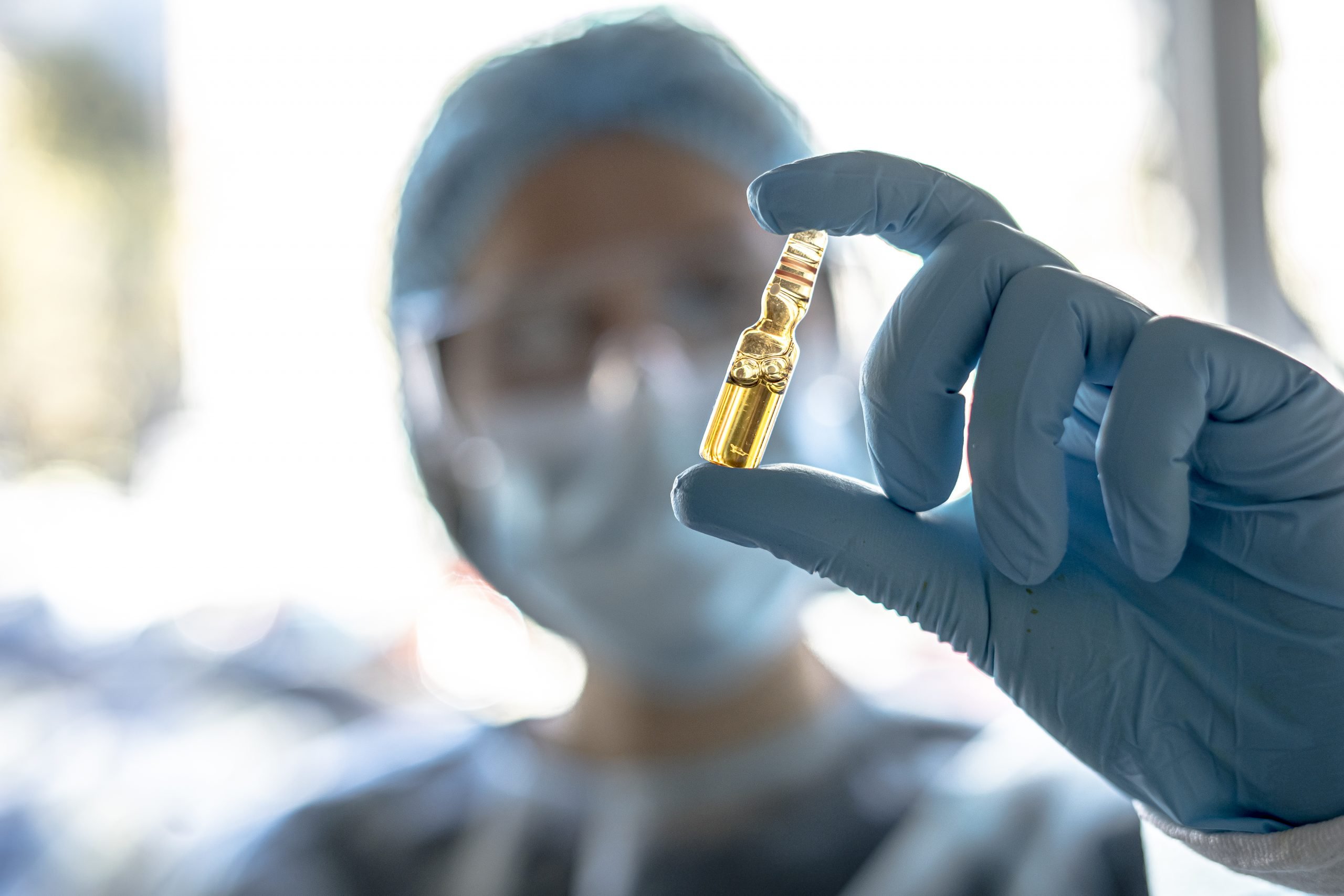Ketamine, once primarily known as an anesthetic, has gained substantial recognition in recent years as a potent treatment for mood disorders such as depression, anxiety, and PTSD. This transformation in its application is based on how ketamine affects the brain, particularly its ability to quickly improve mood and cognitive functions. Unlike traditional antidepressants that may take weeks to become effective, ketamine therapy can produce noticeable improvements within hours of administration, making it a crucial option for those with severe symptoms.
The rapid ketamine therapy effectiveness in treating mood disorders has led to the proliferation of specialized clinics, particularly in urban areas like ketamine therapy Los Angeles. These clinics offer tailored ketamine treatments under medical supervision, ensuring safety and efficacy. The growing popularity of these clinics is not only due to ketamine’s effectiveness but also its ability to provide relief when other treatments have failed. This has positioned ketamine therapy as a significant and innovative option in mental health treatment, attracting both patients and practitioners seeking more effective mental health solutions.

Ketamine Therapy Procedure and Administration
Intravenous Infusion in a Clinical Setting
The primary method for administering ketamine in the treatment of mood disorders is through intravenous infusion therapy. This procedure involves the careful, controlled delivery of ketamine directly into the bloodstream, allowing for rapid absorption and immediate effects. Performed in a clinical setting, this method ensures that patients receive precise dosages adjusted to their specific needs, under the supervision of medical professionals. The setting also allows for continuous monitoring of the patient’s response, ensuring not only effectiveness but also safety during the infusion.
Role of Online Consultations and Remote Guidance
As ketamine therapy online platforms become more prevalent, they play a crucial role in the preparatory and follow-up stages of treatment. Online consultations offer patients the convenience of discussing their conditions and treatment options without the need to travel. These platforms also provide essential guidance on what to expect from therapy, how to prepare for sessions, and how to manage post-treatment care. This remote guidance is vital for ensuring that patients remain informed and supported throughout their treatment journey, enhancing the overall therapeutic experience.
Availability of Ketamine Therapy in Major Cities like Los Angeles
The availability of ketamine therapy in major cities such as Los Angeles has significantly increased, making it more accessible to a larger population. In urban centers, clinics are often at the forefront of adopting new and innovative treatments, providing patients with access to the latest advancements in mood disorder therapies. Ketamine therapy Los Angeles clinics are especially notable for their expertise and leadership in the field, offering state-of-the-art care and playing a pivotal role in the evolution of ketamine treatments.
Typical Treatment Protocol and Duration
The ketamine therapy process is meticulously designed to optimize patient outcomes through a structured and personalized treatment plan. This systematic approach ensures that each patient receives care tailored to their specific needs, enhancing both the effectiveness and the experience of the treatment.
- Initial Consultation and Assessment: Before beginning treatment, patients undergo a thorough evaluation to assess their suitability for ketamine therapy. This includes a detailed discussion of their mental health history, current symptoms, and any previous treatments.
- Customization of Treatment Schedule: Based on the initial assessment, a specific treatment schedule is developed. This typically involves multiple sessions that may vary in frequency depending on the patient’s unique needs and the severity of their symptoms.
- Duration of Each Session: Each ketamine infusion session lasts between 40 to 60 minutes. During this time, patients are monitored continuously to ensure safety and comfort, and to adjust the treatment as necessary.
- Number of Sessions: The total number of sessions is tailored to the individual. Most treatment protocols suggest a series of 6 to 12 sessions over the course of several weeks. This schedule is adjusted based on the patient’s response to the therapy.
- Follow-Up and Maintenance: Post-treatment follow-up is crucial to maintaining the benefits of ketamine therapy. Depending on the patient’s response, maintenance sessions may be scheduled to reinforce and extend the treatment’s positive effects.
This structured protocol is what makes ketamine therapy both effective and appealing to those seeking relief from persistent mood disorders. The careful calibration of treatment duration, frequency, and follow-up ensures that each patient can achieve the best possible outcome with minimal discomfort.
How Ketamine Affects the Brain: Targeting NMDA Receptors
Understanding the Glutamate System and Synaptic Plasticity
Ketamine’s impact on the brain is primarily through its interaction with the glutamate system, the major excitatory neurotransmitter system in the brain, which plays a pivotal role in synaptic plasticity. Synaptic plasticity is the brain’s ability to strengthen or weaken synapses over time, crucial for learning and memory. Ketamine NMDA receptor antagonism increases the release of glutamate in several brain regions, temporarily creating new neural pathways and improving neural communication, which is often impaired in mood disorders.
Mechanism of Action: Blocking NMDA Receptors
The primary action of ketamine in the brain involves blocking the N-methyl-D-aspartate (NMDA) receptors, a subtype of glutamate receptors. This blockade leads to a cascade of changes within the brain’s neural networks. By inhibiting these receptors, ketamine disrupts the normal activity patterns of the brain, which are often dysfunctional in individuals with depression or other mood disorders. This disruption can reset brain function, providing relief from symptoms. The effect of ketamine on neurotransmitters extends beyond glutamate, influencing other systems involved in mood regulation, such as GABA, dopamine, and serotonin.
Rapid Increase in Glutamate Levels and Synaptic Growth
Following the blockade of NMDA receptors, there is a rapid increase in glutamate levels across various brain regions. This surge in glutamate activity triggers an increase in the production of brain-derived neurotrophic factor (BDNF), which is vital for synaptic growth and neuroplasticity. The enhanced synaptic growth fosters better connectivity between neurons, particularly in the prefrontal cortex and hippocampus—areas crucial for mood regulation and cognitive functions. This improved connectivity is associated with the antidepressant effects observed in patients undergoing ketamine infusion therapy.
Enhancing Brain Connectivity and Communication
By increasing synaptic growth and fostering new neural pathways, ketamine enhances overall brain connectivity and communication. This enhancement helps to correct the deficits in brain network functionality associated with depression, such as reduced connectivity between the prefrontal cortex and other brain regions. The rapid improvements in network connectivity are crucial for the quick alleviation of depressive symptoms and contribute to the long-term stability of mood improvements seen in patients treated with ketamine.
Effects of Ketamine on Neurotransmitters
Modulation of Dopamine Release and Mood Regulation
Ketamine’s influence on the brain extends to its ability to modulate dopamine, a key neurotransmitter involved in mood regulation, motivation, and reward processing. Ketamine therapy has been observed to increase dopamine release in certain brain regions, which can significantly enhance mood and overall emotional resilience. This effect is particularly important for individuals suffering from depression, as these patients often exhibit reduced dopamine activity, which contributes to feelings of lethargy and sadness. By boosting dopamine levels, ketamine can quickly improve these symptoms, offering a brighter, more balanced emotional state.

Influence on Serotonin and Emotional Well-Being
In addition to its effects on dopamine, ketamine also impacts serotonin pathways, which are crucial for emotional well-being and the regulation of mood, anxiety, and sleep. Ketamine therapy for depression often results in enhanced serotonin signaling, which can help alleviate the symptoms of depression and anxiety. This serotonin modulation is one of the reasons ketamine can produce rapid improvements in mood and anxiety levels, making it a compelling treatment option for conditions traditionally treated with SSRIs (selective serotonin reuptake inhibitors).
Balancing Neurochemical Activity for Faster Relief
Ketamine’s ability to rapidly balance neurochemical activity in the brain sets it apart from other treatment options. How ketamine therapy works involves a symphony of changes in neurotransmitter systems, including not just dopamine and serotonin, but also glutamate and GABA (gamma-aminobutyric acid). By adjusting the activity levels of these neurotransmitters, ketamine can quickly stabilize mood and cognitive functions, providing fast relief from the symptoms of depression and anxiety. This balancing act is crucial for achieving quick and effective therapeutic outcomes, particularly in patients with severe symptoms.
Unique Action Compared to Traditional Antidepressants
The action of ketamine on neurotransmitters is distinct from that of traditional antidepressants. Most antidepressants work by gradually increasing neurotransmitter levels in the brain, which can take weeks to become effective. In contrast, ketamine treatment benefits include its ability to almost immediately alter neurotransmitter activity through its unique mechanism of action on NMDA receptors and its subsequent effects on other neurotransmitter systems. This unique approach not only leads to faster symptom relief but also impacts a broader range of neurochemical systems simultaneously, offering a comprehensive and rapid therapeutic effect.
Effectiveness of Ketamine Therapy in Mood Disorders
Benefits for Treatment-Resistant Depression Patients
Ketamine therapy has emerged as a groundbreaking treatment for patients with treatment-resistant depression. These are individuals who have not responded to traditional therapies, including multiple types of antidepressants and psychotherapy. Ketamine treatment benefits such patients by utilizing a different mechanism—targeting the NMDA receptors and disrupting harmful patterns in the brain that are associated with depression. Its success in these cases has been well-documented, providing new hope and improved outcomes for those who had previously seen little to no relief with conventional treatments.
Reducing Suicidal Ideation and Acute Depression
A particularly important aspect of ketamine’s effectiveness in mood disorders is its potential to rapidly reduce suicidal ideation. For patients in the midst of a crisis, ketamine can offer significant relief from the intense urges and thoughts associated with suicide. Studies have shown that even a single dose of ketamine can significantly reduce these symptoms, which is a critical component of emergency psychiatric care. This rapid reduction in acute symptoms can be lifesaving, offering patients and caregivers a valuable tool in managing severe episodes of depression.
Potential for Treating Other Mood Disorders
Ketamine therapy’s impact extends beyond its recognized success in treating depression, showing promise in a broader spectrum of mood disorders. Its unique pharmacological profile, which affects neurotransmitters and brain connectivity, positions ketamine as a potential key player in psychiatric care.
- Bipolar Disorder: Ketamine may offer new hope for managing the depressive phases of bipolar disorder. Its rapid-acting properties can quickly alleviate the severe lows that are characteristic of the condition, potentially stabilizing mood swings more effectively than some traditional medications.
- Anxiety Disorders: For patients suffering from various anxiety disorders, ketamine’s ability to modulate neurotransmitter activity can provide rapid relief from persistent anxiety and panic attacks. This is particularly valuable for those who have not responded well to conventional anxiety treatments.
- Post-Traumatic Stress Disorder (PTSD): Ketamine could significantly impact the treatment of PTSD by addressing the underlying trauma-related neural circuitry disruptions. Its potential to enhance synaptic connectivity might help patients reframe traumatic memories and reduce the frequency of PTSD episodes.
- Obsessive-Compulsive Disorder (OCD): The effects of ketamine on the glutamatergic system suggest it could help in managing OCD symptoms by disrupting the compulsive loops and thought patterns associated with the disorder.
- Severe Acute Stress: Ketamine might be utilized for acute stress reactions, providing immediate relief in crisis situations, which could prevent long-term psychological consequences.
The exploration of ketamine in treating various mood disorders reflects an ongoing shift towards more dynamic and rapid-response therapies in psychiatry. By leveraging its unique action on the brain, ketamine could significantly widen the scope of treatable conditions, offering faster and potentially more effective solutions for those with complex psychiatric profiles.
Recent advancements in neuroscience have significantly deepened our understanding of ketamine and neurotransmitters, revealing how this powerful compound influences various neural pathways to alleviate symptoms of depression and other mood disorders. Research has shown that ketamine acts on the brain’s glutamate system, but its ability to modulate other key neurotransmitters like serotonin, dopamine, and GABA plays a critical role in its therapeutic effects. These discoveries about ketamine’s mechanism of action provide a clearer picture of why ketamine works so rapidly and effectively, offering immediate improvements that are not seen with traditional antidepressants. This growing body of knowledge continues to expand the potential uses of ketamine, positioning it not only as a treatment for depression but also as a valuable tool for broader neurological applications.

Looking ahead, the future of ketamine therapy for mental health is vibrant and promising. The ongoing exploration of ketamine’s effects on the brain is paving the way for new treatment protocols that could offer hope to those suffering from a wide range of psychiatric and neurological disorders. Researchers are particularly interested in developing more personalized ketamine treatments, which could involve adjusting dosages, delivery methods, and treatment schedules to better match individual patient profiles. Moreover, as our understanding of ketamine’s impact on neurotransmitters and neural circuits deepens, there is potential for ketamine to become integral in the treatment strategies for emergent mental health issues, particularly those resistant to other forms of therapy.


























